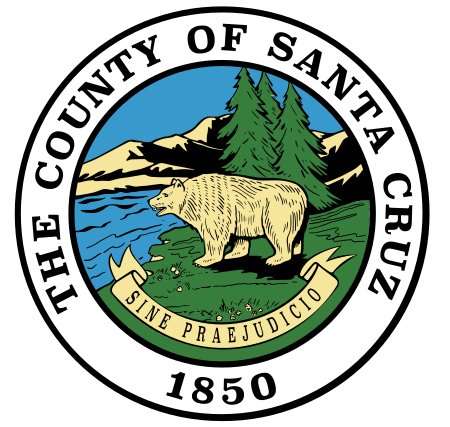FORENSIC SERVICES DIRECTOR (#FL8 ) $66.74-$89.43 hourly / $11,568.00-$15,501.00 monthly / $138,819.20-$186,014.40 yearly
Definition
Under general administrative direction, plan and direct the operation of the Sheriff's Forensic Services Division; perform and monitor complex casework; and other work as required.
Distinguishing Characteristics
Typical Tasks
- Plans, organizes and directs the overall operations and activities of the Forensic Services Division
- Establishes and monitors quality management system for laboratory methodologies consistent with external operating and quality assurance procedures
- Supervises, instructs and reviews the work of forensic laboratory's analytical, technical and clerical staff through subordinate supervisory staff
- Recommends employee selection, promotion, disciplinary actions, separations and other personnel actions
- Initiates, evaluates and makes changes in laboratory methods, procedures and equipment
- Directs research and analysis in the development of new techniques, methods and equipment in connection with forensic science
- Prepares detailed written reports, policies, procedures and correspondence
- Prepares, administers and monitors the laboratory budget
- Negotiates and administers contracts and/or grants with community organizations and other agencies; monitors and evaluates fiscal and legal liability
- Coordinates laboratory activities at crime scenes
- Maintains close liaisons with the Sheriff's Office, other County departments and local law enforcement agencies in activities related to the forensic laboratory and the criminalistic field
- Represents the Sheriff's Office in matters involving the forensic laboratory
- Keeps abreast of new developments in forensic science
- May perform casework in specialized discipline(s)
Employment Standards
Knowledge:
Thorough knowledge of:
- Principles, methods, materials, equipment and techniques of forensic science
- Laboratory Quality Assurance and Safety standards including International Organization for Standardization (ISO) 17020 and 17025 Forensic Laboratory accreditation requirements
- Principles and practices of supervision/management and training, including managing laboratory casework and major crime scenes
- Principles, procedures and techniques of modern forensic and criminal investigation, identification and analysis
- Laws of evidence, criminal procedures, courtroom procedures and testimony
- Recent developments, current literature and sources of information in the field of forensic science
Working knowledge of:
- Scientific principles as related to forensic science
- Laboratory safety precautions and procedures
- Common types of evidence such as digital evidence, firearms, DNA, anthropology and latent prints
Ability to:
- Plan, organize and direct a forensic science laboratory
- Maintain conformance to accreditation standards and supplemental requirements of accrediting bodies
- Supervise, train and evaluate staff
- Perform, plan and oversee a variety of difficult chemical, instrumental and other laboratory analyses
- Resolve analytical problems arising from casework through consultation, review of scientific literature and/or applied research
- Prepare clear, concise reports, correspondence, statistical documentation and other written materials
- Analyze, develop and implement policies and procedures
- Develop and monitor a budget
- Negotiate and manage service contracts and agreements
- Establish and maintain effective work relationships with departmental personnel, representatives of other law enforcement agencies and other contact in the course of work
- Speak effectively before groups and testify in court as an expert
- Interpret and apply local, state and federal codes, ordinances, laws, regulations and policies
- Adhere to Sheriff's Office code of ethics
Education and Experience:
Any combination of training and experience that would provide the required knowledge and abilities is qualifying. A typical way to obtain the knowledge and abilities would be:
- Graduation from an accredited college or university with a Bachelor's Degree in chemical, physical, biological or forensic science, criminalistics, physical anthropology, computer science, or in a closely related field
- Five years of professional forensic science experience and, at least three years of experience in a supervisory or managerial capacity in a full-range forensic laboratory including budgeting, quality assurance programs, forensic science technological advances and management operations
- A Master's Degree or higher in chemical, physical, biological or forensic science or a related field is highly desirable and may be substituted for one year of non-supervisory experience
Miscellaneous
SPECIAL REQUIREMENTS /CONDITIONS:
- Mentally and physically capable of performing all of the classification's essential functions, as summarized within this section and the typical tasks section of this job specification with or without reasonable accommodations
- Physical Ability: Tasks require the ability to exert up to 50 pounds of force frequently, and/or up to 20 pounds of force constantly to move objects; typically involving some combination of climbing and balancing, stooping, kneeling, crouching and crawling; and may involve some lifting, carrying, pushing and/or pulling of objects and materials
- Sensory Requirements: Requires the ability to recognize and identify similarities and differences between shade, degree or value of colors, shapes, sounds, forms, textures or physical appearance associated with job-related objects, materials, tasks or people
- Environmental Factors: Exposure to variable temperatures, confined work spaces and heights; strong unpleasant odors, infectious bio-hazardous materials such as blood, urine and semen which might cause chronic disease or death; dust, pollens, chemical irritants; toxic substances; individuals who may be hostile and abusive; evidence that may be disturbing such as homicide evidence
- Hours: May be required to work flexible hours, shifts, weekends and holidays and be subject to holdover and callback duty; and to provide a telephone number or means by which employee can be reached
- License Requirement: Possession and maintenance of valid Class C California Driver License issued by the California State Department of Motor Vehicles by the time of appointment
- Background Investigation: Ability to pass a full background investigation
Bargaining Unit: 11
EEOC Job Category: 02
Occupational Grouping: 62
Worker's Comp Code: 0285
CLASS: FL8; EST: 4/1/2018;

